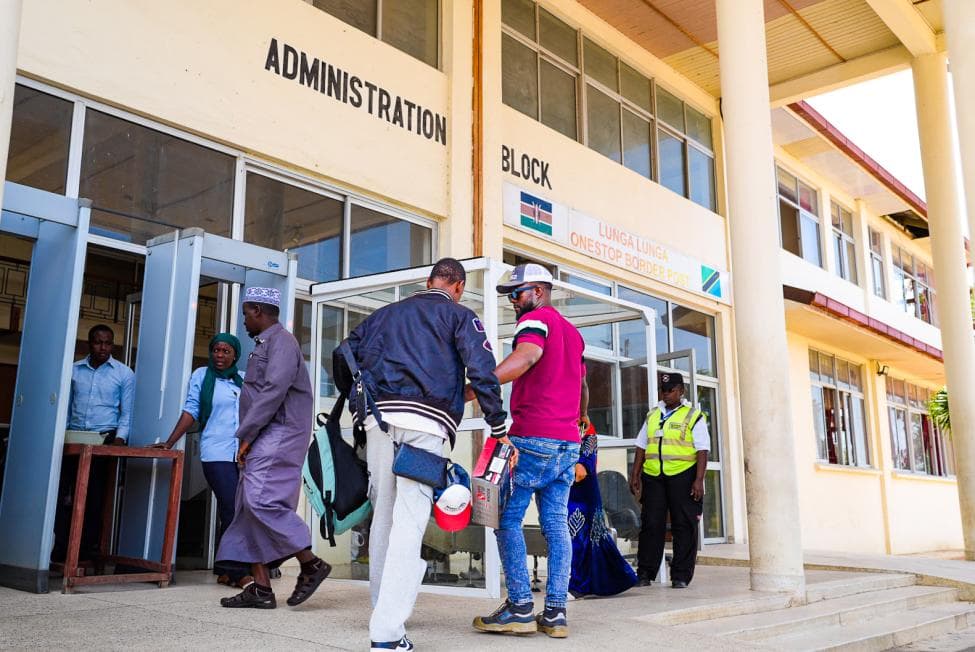We're loading the full news article for you. This includes the article content, images, author information, and related articles.
Kenya is enhancing its border security measures, including potential international collaborations, to address the growing complexities of irregular migration and human trafficking across East Africa.

Kenya is intensifying its efforts to secure its borders against the backdrop of increasing regional migration challenges and sophisticated human smuggling networks. While the immediate focus of recent international discussions has been on European routes, Kenya's strategic position in East Africa makes it a critical player in combating transnational organised crime, including human trafficking.
The deployment of British border security officers to the Balkans to disrupt migrant smuggling networks highlights a global trend towards enhanced international cooperation in tackling irregular migration. These officers are reportedly training border guards in the Western Balkans to utilise British-made drones and biometric tracking systems, alongside sharing techniques for detecting visa and passport fraud.
Kenya shares extensive borders with several neighbouring countries, including Somalia, Ethiopia, South Sudan, Uganda, and Tanzania. These borders, while crucial for trade and regional integration, have also been pathways for irregular migration, often driven by conflict, economic hardship, and environmental factors in the Horn of Africa and Great Lakes regions. The country has historically been a host to a significant refugee population, primarily from Somalia and South Sudan, leading to complex humanitarian and security considerations.
Kenya's legal framework for migration is primarily governed by the Kenya Citizenship and Immigration Act of 2011, which outlines procedures for entry, stay, and exit of foreign nationals. The government has also ratified international conventions related to human trafficking, such as the UN Protocol to Prevent, Suppress and Punish Trafficking in Persons, Especially Women and Children. Enforcement is carried out by various agencies, including the Department of Immigration Services, the National Police Service, and the Border Police Unit.
Organisations like the United Nations High Commissioner for Refugees (UNHCR) and the International Organization for Migration (IOM) work closely with the Kenyan government to manage refugee affairs and combat human trafficking. Civil society organisations also play a vital role in providing assistance to vulnerable migrants and advocating for their rights. Testimonies from intercepted migrants often reveal the perilous journeys undertaken and the exploitation by smuggling networks.
While specific data on Kenyan involvement in Balkan migration routes is limited, the country is a significant transit and destination point for irregular migrants within Africa. According to the 2022 Global Report on Trafficking in Persons by the United Nations Office on Drugs and Crime (UNODC), East Africa remains a source, transit, and destination region for human trafficking, with a notable increase in detected victims.
The implications of unchecked irregular migration and human smuggling for Kenya include heightened security risks, strain on social services, and potential exploitation of vulnerable individuals. For migrants, the risks are severe, ranging from physical harm and exploitation to death during perilous journeys. The involvement of organised criminal networks in people-smuggling also poses a threat to national and regional stability.
The full extent of Kenyan involvement in broader international people-smuggling networks, particularly those extending to Europe, remains an area requiring further investigation. While the British Home Secretary, Shabana Mahmood, recently hosted a summit in London to bolster cooperation on tackling illegal migration, specific details on Kenya's direct participation in operations targeting Balkan routes are not publicly detailed.
The recent international discussions, such as the London summit on illegal migration, indicate a concerted effort to enhance cross-border cooperation. Kenya is expected to continue strengthening its own border management capabilities and engaging in bilateral and multilateral partnerships to address migration challenges effectively.
Observers will be watching for further announcements regarding Kenya's specific strategies for combating human smuggling, including any new technological adoptions or international collaborations. The effectiveness of enhanced border security measures in curbing irregular migration while upholding human rights will also be a key area of focus.
Keep the conversation in one place—threads here stay linked to the story and in the forums.
Sign in to start a discussion
Start a conversation about this story and keep it linked here.
Other hot threads
E-sports and Gaming Community in Kenya
Active 9 months ago
The Role of Technology in Modern Agriculture (AgriTech)
Active 9 months ago
Popular Recreational Activities Across Counties
Active 9 months ago
Investing in Youth Sports Development Programs
Active 9 months ago